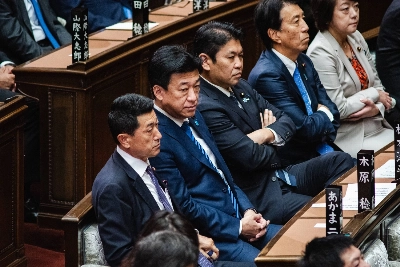The reshuffled Cabinet of Prime Minister Keizo Obuchi will literally have to lead Japan into a new millennium fraught with uncertainties. Its immediate task is to solidify the nascent recovery of the long-foundering Japanese economy and put it on the path of sustained growth. To meet this demand, Mr. Obuchi has retained Mr. Kiichi Miyazawa as finance minister and Mr. Taichi Sakaiya as director general of the Economic Planning Agency.
The two men's continuous service in these key Cabinet posts ensures the continuity of Mr. Obuchi's economic policies, offering the public a better and clearer perspective on the government's tactical approach to current economic problems. The Bank of Japan's monthly report for September, released on Monday, apparently endorses the analysis that the nation's business executives are now confident of the government's macroeconomic policy, in which the two economics ministers have been playing key roles.
One more focal point in Tuesday's Cabinet change is the appointment of Mr. Yohei Kono, former president of the Liberal Democratic Party and also former foreign minister, to that same Cabinet post. Mr. Kono, one of the most seasoned political leaders in the governing party, is the best choice for the task of steering the nation's diplomacy, which will have to efficiently meet demands for even more active contributions -- not only economically, but politically and otherwise -- to the international community. Specifically, Mr. Kono's caliber as a political leader will be first put to the test in managing negotiations with Russia for a peace treaty, for which 2000 has been set as the target year.


















With your current subscription plan you can comment on stories. However, before writing your first comment, please create a display name in the Profile section of your subscriber account page.